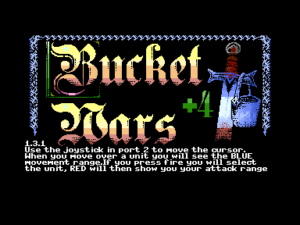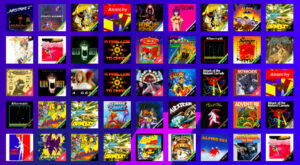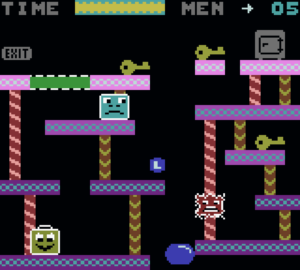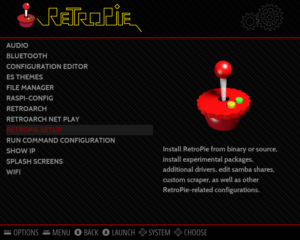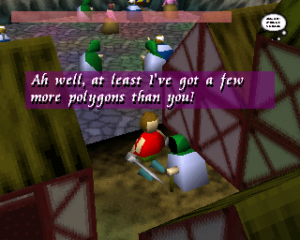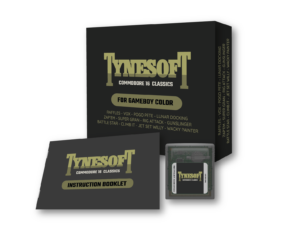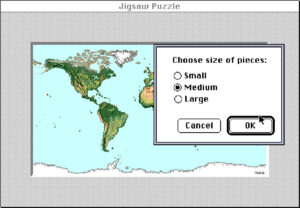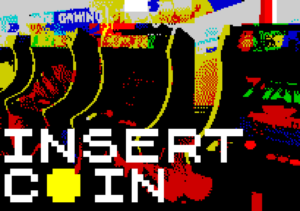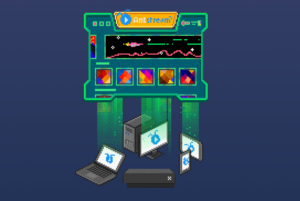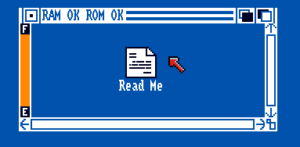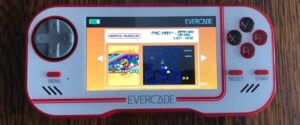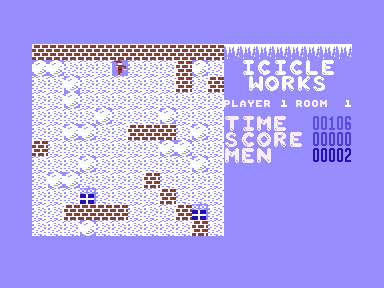
If you had a Commodore Plus/4 then you probably played Icicle Works at some point. It was created by young programmer, Doug Turner, who also went on to make a handful of other games (Fingers Malone, Prospector Pete). Turner is about to launch his first Plus/4 game in nearly 35 years: A sequel to Icicle Works, featuring Prospector Pete!
Hi Doug, thank you for taking the time to talk with us. How did you get into writing games?
That’s what I’d always wanted to do from the first time I saw a home computer. I was one of the first people round our way to get one in the early ’80s. I looked at the ZX81, and rejected it immediately. So I started out with a VIC-20, which I used to learn programming on.
Nothing was available to help us back then. We were completely on our own. My friends were as keen as me, and a few of us had machines, but no-one knew any more that anyone else. We stumbled around in the dark, piecing it together as we went. There were few books around – how to program BASIC, learn 6502 etc., but to be honest they were all pretty useless. I soon got frustrated with BASIC, as I could not make anything that looked like the commercial games that were available, so I taught myself machine code using a monitor program that I bought. That was hard work! I wrote a little demo for a local TV shop, but I was losing interest in the VIC-20. There were rumours of the Commodore 64 coming.
I bought one of the first batch of C64s to enter the country, and was instantly in love with it, but had no clue of the inner workings of the machine. I kept dabbling, but went off to Uni and decided to focus on that instead.
During that first year at Uni it became very clear that the home computer market was exploding, and I thought to myself – I really need to get in some of this action. During that year I reverse engineered the C64 tape system and wrote a fast tape loader. I approached a local software outfit called Dream Soft, and they agreed to market it for me. Burner was born, and we got quite a bit of interest in it.
This confirmed to me that I could do it, and that there was a lot of fun to be had doing it – but what was I doing stuck at Uni? So I approached my professor who completely understood, and agreed to me taking a year out to give it a shot. My place would be held for me – I had nothing to lose.
The fast loader was OK, but it was an erratic income. To have any chance of making it I needed to be writing games, so I gave it a shot.
Your first published game appears to be Icicle Works. How did that end up in Commodore’s Plus/4 pack-in games?
Icicle Works was my first published game, but not my first game. I wrote one before that, for the C64, that never got published. It was a Pacman clone, which I tried hard to get as close as possible to the arcade version. It took me longer than I thought, and unfortunately in the time it took me to complete it the market had become awash with Pacman clone games. I’d missed that opportunity.

At this time I teamed up with State Soft, who I met up with thanks to the Burner loader (it was great door opener – it got me into contact with lots of the players in the emerging games industry at that time). They said that they had a contract to supply a title for the launch of a new Commodore machine, and would I like to take it on? I certainly did! The spec of the game was already laid down – a Boulder Dash clone, but with a Christmas theme. I took the spec home (all one paragraph of it!) and set to it.
By this time I had a decent development system: a CBM-II with a decent assembler, and an 8250LP twin drive. I got a prototype of the game engine running on the CBM-II pretty quickly (all done in PETSCII on it’s 80 column screen) and the rest is history.
I played Icicle Works as a kid a lot, and when I heard about Boulder Dash, I’d assumed it was an Icicle Works rip-off! Were your other games inspired by anything? (Fingers Malone has Miner 2049er vibes going on)
I’m afraid that my games weren’t terribly original. Fingers Malone was pitched to me as a ‘generic platformer’ by the guys at British Software. I think they’d paid someone to come up game ideas, and again I was given a single sheet of A4 with some rough ideas jotted down. It was all pretty amateur to be honest! But the name of the game back then was to get something out as soon as possible and never mind the quality or originality. I took that very basic idea and did my best to turn into something that would at least would be worth the £1.99 that they were going to charge for it. I know it’s a bit of crazy fast game, but I think people enjoyed it. So, not a lot of inspiration went into that one.
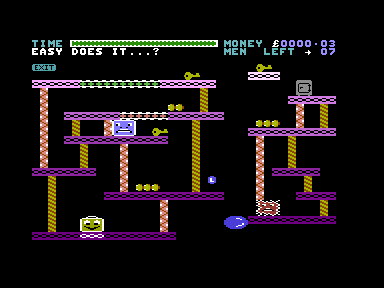
Prospector Pete was my last C16 game, and for that I was inspired by a game on the Atari – O’Riley’s Mine. It was simple enough that I knew it could be squeezed into 16K, but I wanted something that looked silky smooth when played. So many C16 games back then were just trash. Even if the game play was simple, I wanted it to be well executed.
Icicle Works appeared to make it from the Commodore machines to the ZX Spectrum and MSX – were these anything to do with you?
Not directly, but I knew the guys doing them, and we met up a few times to discuss things. My version was started first, and finished first, so they all basically followed my lead. It was fascinating to see just how conditioned we all were by the specific hardware that we were each working on. When I gave a very early demo of it (which was a full screen smooth scroller at that point) I had them asking me just how I had done it, and they pointed out that the hardware they were working on just could not do it. That was one of the reasons that I changed it to the character scrolling window that is in the final version – it was much easier for the guys to port it to the other systems. Naturally, I did do the port the C64!
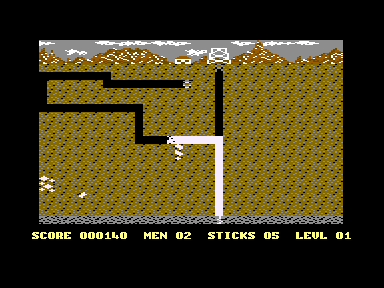
You wrote Fingers Malone and Prospector Pete at University, did the alcohol help with the coding?
Oh yes! But to be honest, I did get a lot grief over it from my mates. Quite a few evenings I had to be dragged out of my room and down to the bar. If I refused to go they’d be banging on my door again after closing time demanding to see what progress I’d made, and I’d be told that it wasn’t worth it and I should have just gone out!
Did you write any other published games aside from Icicle Works, Fingers Malone and Prospector Pete?
Yes, I worked on a C64 title called ‘Nemesis: Escape from Euboea‘. This was a joint effort, and it was hard work. I had really gotten back in to the groove of University life at this point, and probably should have not have undertaken it. The final result was two distinct games just glued together. I think given the difficulties of working away from the other developer (remember this was before e-mail) we did an OK job, and squeezed it all in 64K. The game itself got a very limited release, in Germany I think. It’s quite a rarity these days, but I do have an original cassette of it somewhere.
What did you do after your stint in making 8-bit games?
I finally knuckled down and finished my degree, and then went out into the big world of real programming. I did think about getting back into the games industry but at that point it had taken quite a down turn. Instead I started working on contract, and eventually landed an amazing few years at IBM, which eventually lead to a permanent position there. I worked in graphics R&D for them, working with a team that had just created an amazing chip. It contained an embedded RISC processor that they had designed together with a bunch of integrated graphics hardware like blitters. Way ahead of its time. I got to write a lot of the software for that.
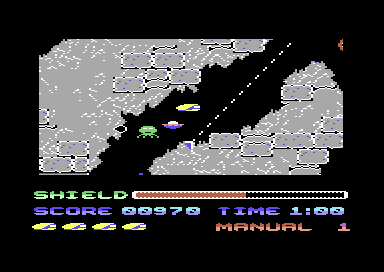
This was just as the Amiga came out, which I’d been eagerly waiting for, with half a mind to write a game for it. But the problem was that the stuff I was playing with at work was just so much better than the Amiga, so I just lost interest in it. The guys at IBM were brilliant, and I was gutted when I learnt that I’d just missed meeting Jack Bresenham (him of the line drawing algorithm). Ah well.
Following on from that I got involved in a new cutting edge project at IBM – digital video. This was the very late eighties – about a decade before it would be a mature technology. I met some of the pioneers and greats, and had a blast developing codecs. I then got a chance to work on this stuff with a startup in Boston, so I quit IBM and headed to the States for a few years. Best few years of my life, but the company wasn’t successful and I wound up back in the UK.
I went back to contracting, and back to IBM, but a different part. That wound up being a very long term contract, working on enterprise grade hard disk drive controllers. I eventually needed a change, and moved to a set top box chip manufacturer, where I spent a very long time writing everything from complete operating systems to cryptography software. When that all came to end I joined the startup that I’m with now, designing chips and systems for 5G 60GHz systems. This is without doubt the most fun and most challenging of all the jobs that I’ve had.
Judging by your posts on Commodore Plus/4 World, you seem to have a soft-spot for the system and the scene. What do you like about it?
When I stumbled on the scene I was couldn’t believe it. The 264 series was considered a bit of a bad joke back in the day. No-one was surprised when it imploded, and basically set Commodore on the road to it’s destruction. So to see that a hard-core of fans were keeping it going was beyond belief.
I always liked the TED chip, but I knew that I hadn’t scratched the surface of what it could do. Seeing what the maestro’s were doing with it was just a joy. They were super friendly and made me right at home, so I decided it was time to write another game.
You appear to be working on a new game for the Plus/4 — what’s it going to be, and how is it going?
The game is all done, and should be released any day now. We’re just going through frantic last minute checks and tweaks. I’ve been helped a lot by some of the guys at Plus/4 World who have been incredibly generous with their time, and incredibly patient with me: I’ve been promising them this game for several years! It’s a revisit of Icicle Works, but it’s been brought right up to date. I’ve gotten rid of Santa, and brought back Prospector Pete, who is now exploring a vast mine looking for more loot. There are quite a few innovations in the game play, so yes, it’s Boulder Dash / Icicle Works in lots of ways, but it’s also a lot more than that. You’ll see when you play it.
I also wanted to go back and exorcise an old demon of mine: back when I started Icicle Works I spent weeks trying to get a split screen with smooth scrolling working, and I just couldn’t get it to work. I convinced myself that it wasn’t possible. But then Tom Thumb came out and it clearly was! I needed to go back and get it working once and for all – and make the game that I always had in mind back then.
The new game is called The Pit, and was released yesterday on Plus/4 World.
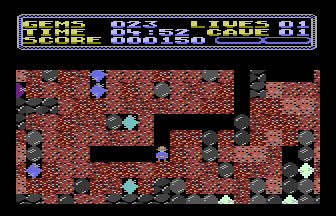
“It has been quite a few years since we last saw Prospector Pete in action (around about 34 years I think!). But he is back, and he is still wandering around abandoned mine workings looking for treasure. Having managed to escape from the old Klondike mine (which was infested with monsters and kept flooding) he stumbled across another abandoned mine to explore. This one used to be owned by a rather unscrupulous mining company called ‘Rock Bottom Mining Corporation’. They were looking for gems, and found lots, but they also found some other things down there too. Some good, some not so good. Eventually, despite the riches that they were extracting from the mine, they had to abandon it. They left lots of things down there in their rush to leave…
Pete is now on his new quest – to get through all the caves of the mine workings, gathering as many gems on the way as he can, solving puzzles, fighting monsters, and trying not to get stuck.
He will encounter lots of obstacles on the way. The caves are littered with boulders, which will come crashing down if he is not careful. Pete has been working out, and he is able to push and pull boulders to clear a path, and attack things.”
The Pit is available now from this page here. We would like to thank Doug Turner for his time in doing this interview.

